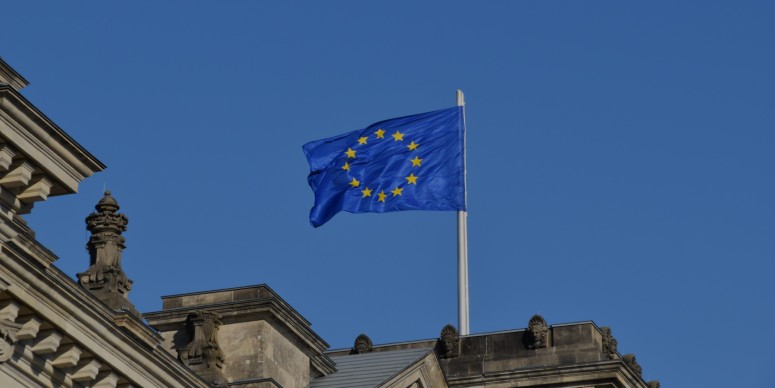While in the US there are signs that government and businesses are coming on terms with the opportunities blockchain presents, in Europe the situation varies from country to country. On the one hand, there are many countries trying to become the face of Blockchain in Europe (Switzerland is probably the most outstanding). On the other hand, none of them has established its dominance. That’s why it’s important to speak about the European Commission initiative to develop a common approach on Blockchain technology for the EU in the international arena.European Union has recognized that opening space for new technology in the political and regulatory level is a challenge, but creating demand for political and regulatory engagement around a potentially disruptive technology was never supposed to be an easy and quick fix.
The European Commission has identified blockchain-inspired technologies as having huge potential for administrations, businesses and the society in general. These initiatives might indeed bring great improvements for the European industry, from start-ups to large corporates, administrations and citizens.That’s also the reason why the EU has taken on the responsibility to create an ecosystem that will support the development of blockchain and distributed ledger technology (DLT) in general. And it’s through proper legislation that will support the standardization of all that blockchain has to offer, that the EU hopes to encourage the European governments, universities, major firms and start-ups to develop blockchain solutions. This challenge of standardization includes various aspects of blockchain, such as cybersecurity, data protection, interoperability of ledgers, smart contracts, self-sovereignty and digital identity.
Eva Kaili, MEP (S&D Greece) and the Rapporteur of the European Parliament of the Blockchain Resolution, stresses that
“blockchain is a technological space that the European Union can become a global leader in.” That’s why it became so important to write and
pass a Blockchain Resolution. The existence of such a resolution will help to educate people about blockchain and its general purpose and establish the difference between blockchain, the technology, and different cryptocurrencies. According to Kaili, we should also start exploring the possibilities surrounding “Crypto-Euro”. With that in mind, her work group has also asked both the European Commission and the European Securities and Market Authority (ESMA) to propose a framework that enables ICOs within a secure and legally-certain environment.Passing the Blockchain Resolution in October 2018 isn’t the only action the EU has taken to raise its game and ensure a non-restricted passageway for new initiatives.
In February 2018, the European Commission launched another blockchain initiative called
EU Blockchain Observatory and Forum. Their mission is to promote blockchain in Europe by mapping existing blockchain initiatives, analyzing and reporting on important blockchain themes, promoting blockchain education and knowledge sharing and holding events to promote debate and discussion.The
European Blockchain Partnership (EBP) consists of 26 member states plus Norway and Lichtenstein. Since April 2018 the Partnership has held monthly meetings with the aim to develop a trusted, secure and resilient European Blockchain Services Infrastructure (EBSI) meeting the highest standards in terms of privacy, cybersecurity, interoperability and energy efficiency, as well as fully compliant with EU law. The ambition of the Partnership is to make this trusted infrastructure accessible to support digital services deployed by the public and eventually in the future also private actors.In April 2019, the European Commission helped to launch the
International Association for Trusted Blockchain Applications in Belgium as a global multistakeholder forum for developers and users of Blockchain / Distributed Ledger Technology (DLT). The purpose of INATBA is to promote an open, transparent and inclusive global model of governance and support the development of interoperability specifications and standards in sectors such as financial services, health, energy, agriculture, mobility or public services.
As we can see, 2018 was the year when the EU started to push its role in the technological field of blockchain and in 2019 they seem to maintain on the same course.In addition to the Blockchain Resolution, the EU has also been working on its stance on cryptocurrencies. In light of the European Union’s 5th Anti-Money Laundering Directive (5AMLD), where they also
put an end to buying Bitcoin anonymously, discussion about the future of cryptocurrencies in Europe has sparked. According to some, the EU leaders taking a harder stance on virtual currencies can play an important role in
reviving trust in the cryptocurrency market. It goes without doubt that this directive is going to enhance international cooperation
to establish a centralized and public register of companies and their ultimate beneficial owners. With this directive, the EU might prevent the cryptocurrencies from turning into "tomorrow's tax havens” as some commentators have called them.The interest and effort that the EU has invested in blockchain only reflect the disruptive potential of this technology. The new regulations are important to guarantee a healthy environment for the future development of blockchain initiatives. And it might be challenging at the beginning, but as Eva Kaili put it about blockchain: “challenges are as great as its potential.”
Start your journey and get involved in the Blockchain Revolution!
